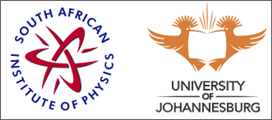Speaker
Abstract content <br> (Max 300 words)<br><a href="http://events.saip.org.za/getFile.py/access?resId=0&materialId=0&confId=34" target="_blank">Formatting &<br>Special chars</a>
It has been recognized that knowledge and innovation are critical contributors to national economic prosperity and welfare. As a result, undergraduate education has assumed greater significance within the higher education system to increase the enrolment of postgraduate studies. However, the status quo remains, as the country still suffers from an acute shortage of trained personnel in science-related fields notwithstanding difficulties experienced by students coming from disadvantaged backgrounds. The high failure rate in university first year has placed universities under considerable pressure to in particular adapt undergraduate science curricula in order to provide students with adequate foundation required to navigate the first year curricula. As a consequence of this dilemma, the duration of the three-year undergraduate science programs at the University of Johannesburg (UJ) were elevated to four years in order to make provision for additional tuition. This study examines the impact of an additional year in the undergraduate curriculum. To establish the impact of this option, the comparative analysis of the performance of students from the four-year foundation program and their counterparts in the three-year mainstream curricula was performed. The investigation looked at the adequacy in knowledge, understanding, confidence and performance of these two groups in the physics first year course.
Level for award<br> (Hons, MSc, <br> PhD)?
PhD
Apply to be<br> considered for a student <br> award (Yes / No)?
No
Would you like to <br> submit a short paper <br> for the Conference <br> Proceedings (Yes / No)?
Yes

